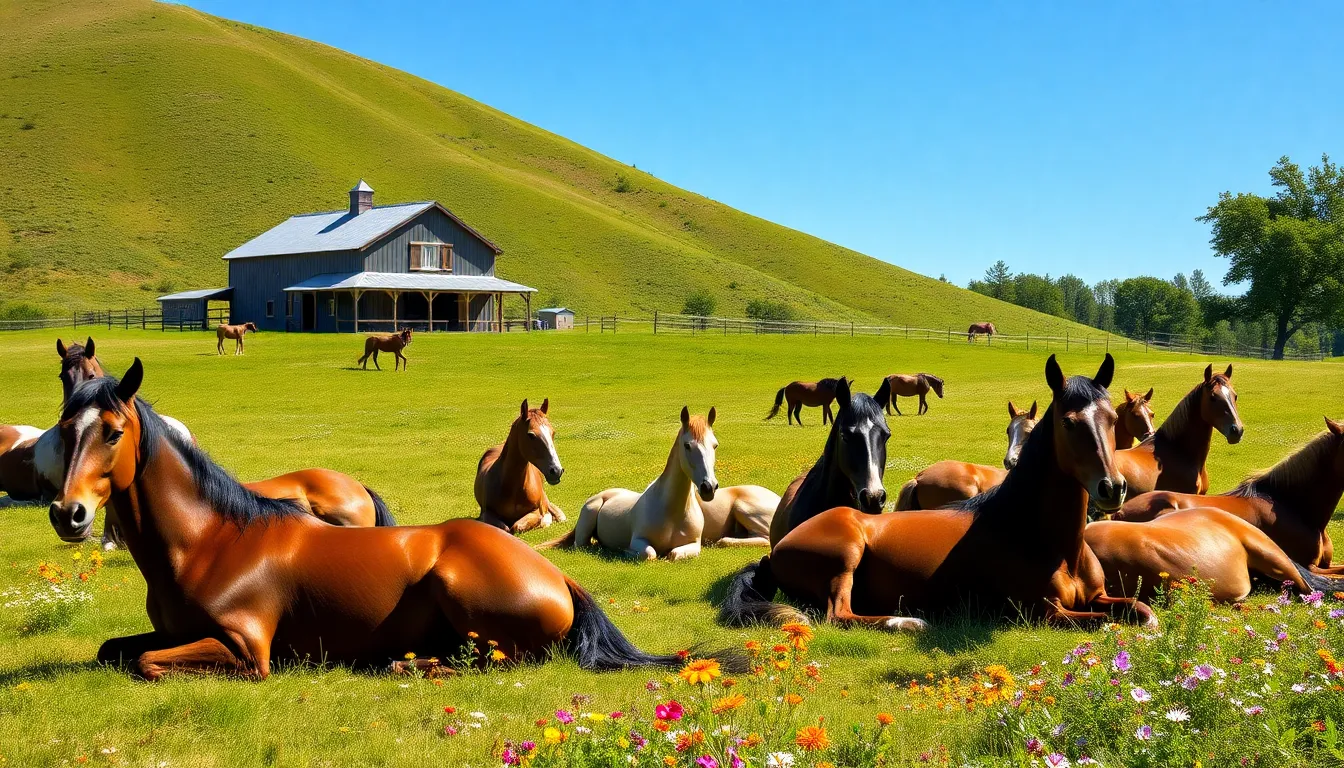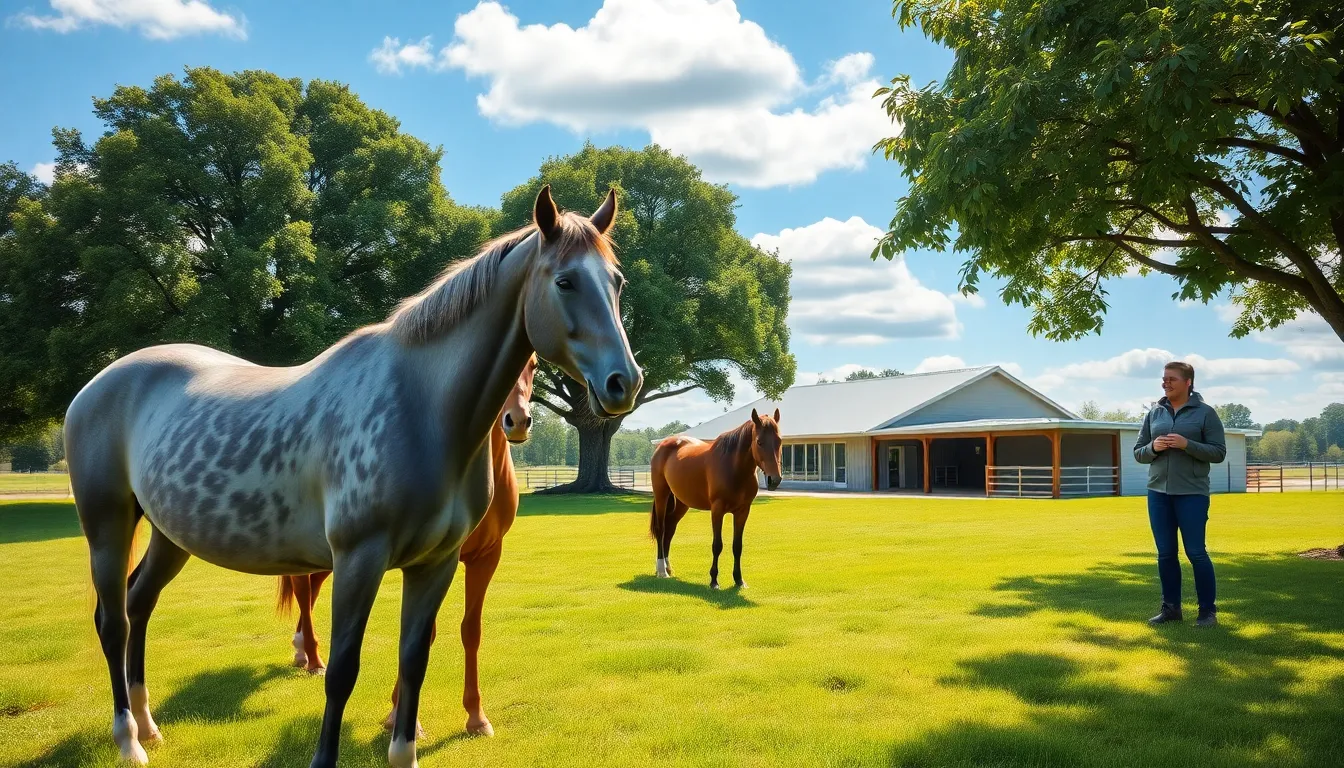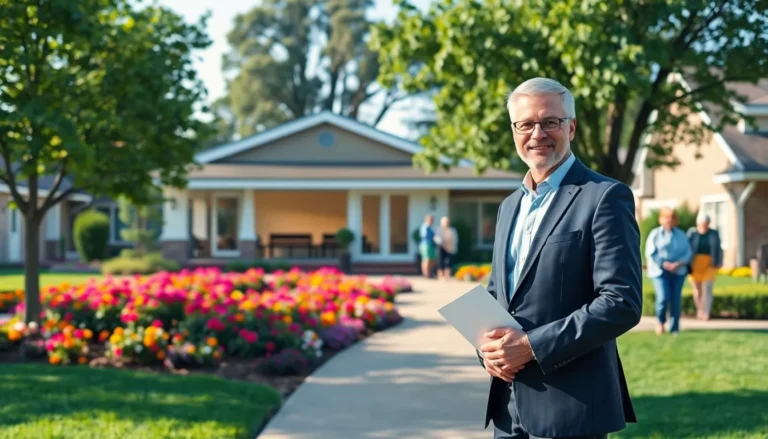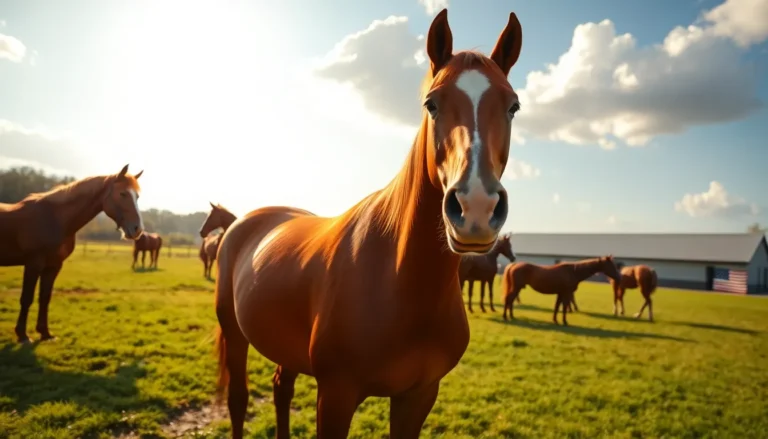As humans, we often think about retirement plans for ourselves, but have you considered how our four-legged friends enjoy their golden years? Enter the concept of retirement homes for horses, these aren’t just the horsey equivalent of a laid-back beach cabin. Instead, they offer a sanctuary for senior equines who deserve rest, relaxation, and a peaceful environment after years of hard work. Think of it as a spa retreat, but for horses. Let’s trot through the important reasons these havens make a difference in the lives of our beloved steeds.
Table of Contents
ToggleUnderstanding The Need For Horse Retirement Homes

Just like humans, horses can face numerous transitions in their later years. After a lifetime spent racing, showing, or working, many horses need a tranquil space where they can enjoy retirement instead of being pushed to continue laboring. Horse retirement homes respond to this essential need, providing refuge for aging equines where they can thrive instead of simply surviving. It’s hard to imagine a racehorse enjoying his golden years while still galloping around the track or a trail horse forced to navigate rugged terrains well past his prime.
As horses age, they face a variety of challenges including arthritis, declining stamina, and changing dietary needs. These issues make it crucial for owners and caretakers to recognize the importance of these homes. Instead of seeing retirement as an end, it should be viewed as a chance for our equine companions to enjoy life’s later stages in peace. By providing a safe haven, owners can ensure their horses receive the tender care needed in their twilight years.
Benefits Of Retirement Homes For Horses
Retirement homes for horses offer a plethora of benefits, ensuring that these majestic creatures live their best lives as they age. Here are some key perks:
- Companionship: Many retirement homes are designed to foster a herd environment, allowing horses to socialize and form bonds, which is vital for their emotional health. After all, no one wants to spend their senior years alone.
- Proper Management of Health Needs: These facilities often employ experienced staff who can manage health challenges specific to senior horses. This proactive approach ensures that they receive medication, specialized diets, and regular vet checks.
- Maintenance-Free Living: Many owners find that maintaining a retired horse can be more labor-intensive than expected. Retirement homes take care of feeding, grooming, and daily exercise, relieving owners of those responsibilities.
Key Features Of A Horse Retirement Home
When considering a retirement home for a horse, it’s important to look for specific features that will make his residency comfortable and fulfilling. Here are some essential aspects to consider:
- Spacious Pastures: Horses need room to roam, graze, and play. A good retirement home will provide ample space to move freely and enjoy a natural lifestyle.
- Sheltered Enclosures: Access to shelter is important for keeping horses safe from harsh weather conditions while still allowing them to connect with the outdoors.
- Quality Feed and Water: Proper nutrition is paramount for maintaining health in senior horses, so look for homes that prioritize quality feed and fresh water access.
- Expert Staff: Qualified personnel trained in equine care can assess the horse’s needs and ensure proper care tailored to individual needs. The more experience the staff has with senior horses, the better.
Choosing The Right Retirement Home For Your Horse
Selecting the right retirement home can be daunting, but a few factors can help simplify the decision. First and foremost, visit potential homes and observe the environment. Are the horses well-cared for? Is the facility clean and safe?
Next, inquire about the staff-to-horse ratio. A lower ratio generally means more individualized attention for each horse. Discuss the home’s protocols about health care and management, as well as what activities they offer to keep the horses engaged and satisfied.
Finally, don’t hesitate to ask for references from current residents’ owners. Hearing first-hand experiences can provide valuable insights into the quality of care and satisfaction level within the facility.
Success Stories: Horses Thriving In Retirement Homes
Countless hearts warm at the thought of horses finding their happiness in retirement. Take, for instance, Daisy, a Tennessee Walking Horse who spent her youth entertaining children at summer camps. Once she transitioned to a retirement home, she quickly adapted, forming close friendships with other retirees. Her days now consist of lounging under trees and enjoying gentle trail walks, a sharp contrast from her busy early life.
Then there’s Max, a former racehorse who found himself lost in the hustle of continuing duties even though showing signs of fatigue. After moving to a retirement facility, he found a new purpose tending to younger horses, acting as a mentor while enjoying a slower pace of life. These stories illustrate the transformative power of a retirement home, giving horses the chance to thrive rather than merely exist.







